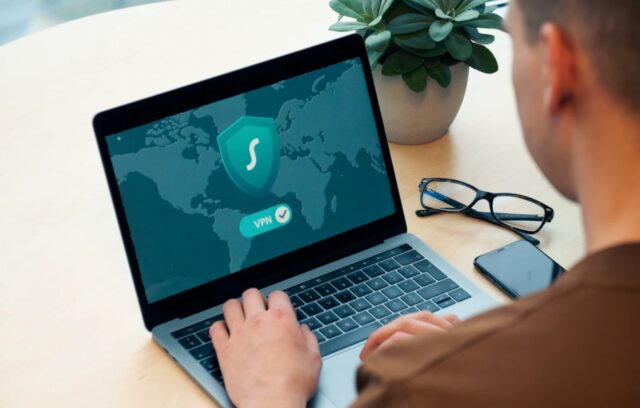
Gaming with a VPN has become pretty popular nowadays, and for good reason! You might get better ping and less lag, you can bypass IP bans and unblock geo-locked content, and can even protect your network against DoS/DDoS attacks.
If you’re interested in that topic, you can read more about using a VPN when gaming here. That guide will tell you everything you need to know.
Still, some of you might have one burning question – can you improve your gaming experience with a free VPN like EN.VPNwelt? Since paid VPNs are pretty expensive (at least for some of us).
The tl;dr in our opinion is that no, you can’t since using a free VPN isn’t worth it. If you’d like to know exactly why, keep reading. We’ll cover everything related to free VPNs in this article.

Why Free VPNs Won’t Improve Your Gaming Sessions
Really, their only advantage is the fact that they’re free to use. Other than that, there’s not much a free VPN can offer. It’s all downhill from there:
They Are Slow
It’s common knowledge that VPNs slow down your online speeds because they encrypt your traffic (they make it heavier) and route your data through distant servers.
However, good paid VPNs minimize the slowdown by offering a large server network, lightweight protocols, and speed-optimized servers. Free VPNs don’t have the financial resources to do that.
If you game with a free VPN, you should expect regular slowdowns, high ping and lag, and random disconnects. Since they’re free, tons of people flock to them to the point the servers are too overcrowded (so the speeds will be really bad).

They Have Bandwidth Caps
Free VPNs can’t afford to offer unlimited data like paid VPNs. So they have to limit users to anywhere between 500 MB and 2 GB of data each month.
Doesn’t sound too bad?
Well, keep in mind online games consume a lot of data. For example, Dota 2 consumes anywhere between 50-100 MB of data per match. And Fortnite can eat up approximately 50-75 MB per hour.
All in all, you’ll barely be able to play a few hours of your favorite online game each month with a free VPN! It’s like you’re back in middle school living with your parents and you’re grounded – only worse!
They Have Ads
Free VPNs have to make money somehow, and they usually do that by exposing you to ads while you use the service.
That seems like a small price to pay, but it can get annoying to keep seeing or having to interact with tons of ads to use the VPN.

They Log Your Data
To make more money, some VPNs log user data and sell it to advertisers. Don’t be surprised if you start seeing random creepy personalized ads all of the sudden!
And all of that is completely legal because free VPNs normally make it clear in their TOS that they do this. They just use vague wording like “collect user-submitted information” and “share the collected information with third-parties and our partners.”
They Are Dangerous
This is particularly true if you download and use random free VPNs you never heard of – the kinds you find on Google Play that only have 5-star reviews that were obviously written by bots or just copy-pasted.
These VPNs might contain malicious code that triggers the moment you install and use them. You probably don’t need us to tell you why that’s bad. The malware could take over your device and steal or delete sensitive and important data (and that’s just one example!).

Paid VPNs Aren’t as Expensive as You Might Think
Many people turn to free VPNs because they’re put off by the steep prices they hear of when reading about VPNs.
But here’s the thing – the steep prices are usually only for the monthly plans. Paid VPNs often have long-term plans like three-month, six-month, one-year, and two-year plans. Those subscriptions are much cheaper (the longest plans often come with savings of up to 70-80%).
We checked the subscription costs of over 30 VPNs and did the math – on average, a long-term plan would cost you a maximum of $5 per month (so up to $60 per year). And keep in mind many VPNs price their longest subscriptions even lower (about $2-$3 per month!).
What’s more, if you use an affiliate link from a VPN review site, you’ll save even more money because you’ll get access to big limited-time discounts.
Bottom line – paid VPNs aren’t expensive if you get long-term plans and take advantage of great deals.
Get a Paid VPN with a Free Trial and/or Good Refund Policy
To get the best bang for your buck, we recommend trying VPNs that have free trials. For example, CyberGhost VPN has a free 24-hour trial and PrivateVPN has a free seven-day trial. The trials give you access to all the VPNs’ features, so you don’t get a limited experience. Also, you don’t need to share any credit card details to use the free trials.
Besides that, you should use a paid VPN that has a no-questions-asked money-back guarantee. Basically, you shouldn’t be required to give certain reasons or meet certain requirements (like not going over a specific GB bandwidth limit) to get your money back. That makes the VPN more trustworthy, and it also helps you make risk-free purchases (since you can always get your money back if you’re not 100% satisfied with the service).
Generally, paid VPNs have 30-day money-back guarantees. That should be more than enough time to test the VPN to see if it’s right for you. With some VPNs, you might get an even longer refund period. For instance, CyberGhost VPN has a 45-day money-back guarantee as long as you get a long-term subscription.

How Do You Feel about Free Gaming VPNs?
Do you use or avoid them? If you use them, what makes it easy to trust these services? Also, which free VPNs would you say are trustworthy and reliable? We’re looking forward to hearing your thoughts in the comments.









